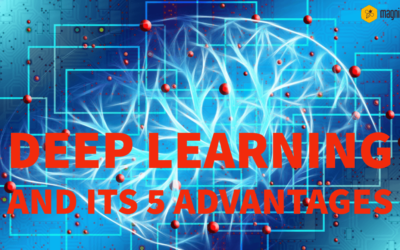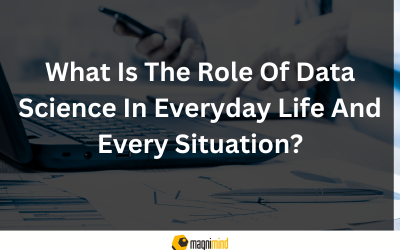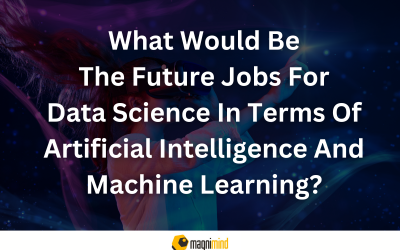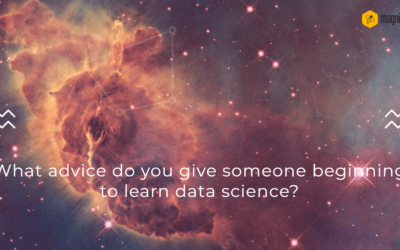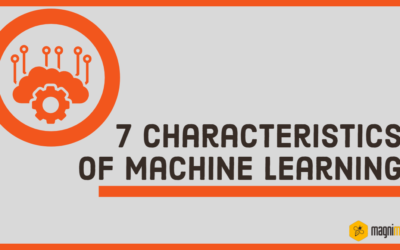Recent Articles
How People Use Data Modeling With Advantages In Everyday Life?
Sep 16, 2021 | Data Science Blog
Data modeling stands for the process of developing a descriptive diagram that demonstrates relationships between different types of information which are to be stored in a database. It’s a theoretical presentation revolving around data objects and associations between different data objects. Data modeling is an important skill for every data science professional, whether one is architecting a new data store or doing research design for his/her organization. To excel in this key component of data science, one needs to have the ability to think systematically and clearly about the major data points to be stored as well as retrieved, and how they need to be related and grouped.
Deep Learning And Its 5 Advantages
Sep 16, 2021 | Deep Learning Blog
Over the past few years, you probably have observed the emergence of high-tech concepts like deep learning, as well as its adoption by some giant organizations. It’s quite natural to wonder why deep learning has become the center of the attention of business owners across the globe. In this post, we’ll take a closer look at deep learning and try to find out the key reasons behind its increasing popularity.
What Is The Role Of Data Science In Everyday Life And Every Situation?
Sep 16, 2021 | Data Science Blog
There’re lots of people who closely associate data with privacy issues, data leaks, and profit maximization techniques. Also, terms like data science, analytics, statistics, databases etc are ones that most people associate with the professional world exclusively. However, all these and many of their associated ones aren’t meant for data science professionals only. In reality, most people experience the role of data science in their day-to-day lives and in almost every situation. From new friend suggestions by Facebook to Google’s help to complete a search phrase to television shows predicted by Netflix in accordance to your preferences, and many more – data science is being used by common people in almost every situation.
What Would Be The Future Jobs For Data Science In Terms Of Artificial Intelligence And Machine Learning?
Sep 16, 2021 | Machine Learning Blog
With the tremendous popularity of data science that shows no signs of slowing down, those looking for future jobs for data science professionals should be ready for some good news. As a humungous 2.5 Quintillion bytes of data gets generated each day, there’s a growing demand for professionals who are capable of organizing this enormous pile of data to offer meaningful insights, which in turn can help businesses make informed decisions and find relevant solutions. No wonder why future jobs for data science professionals will hail these people as the hero since these are those who can extract meaning from seemingly innocuous data – no matter whether it’s structured and organized or unstructured and disorganized. Though the post of data scientist has featured as the leader among other jobs for a few years in a row, the increasing emphasis on AI (artificial intelligence) and ML (machine learning) has given rise to a few jobs, the demand for which may soon outgrow that of data scientists. In fact, the competition between machine learning engineers and data scientists is heating up and the line between them is blurring fast.
What Advice Do You Give Someone Beginning To Learn Data Science?
Sep 16, 2021 | Data Science Blog
The data scientist is considered as the best job in the USA for 2019 with $108,000 as a median base salary, plus an attractive number of predicted openings. According to the prediction made by the IDC (International Data Corporation), in 2020, worldwide revenues for business analytics and big data will reach over $210bn. These statistics are more than enough to motivate someone to learn data science. If you need some more reasons to learn data science, it’s associated with a huge number of new applications and industries that emerge from the judicious use of massive amounts of data. From self-driving cars and robots, bioinformatics, speech recognition to object recognition, neuroscience, and many more – data science is central to the entire organization dealing with any of these.
7 Characteristics Of Machine Learning
Sep 16, 2021 | Machine Learning Blog
In recent years, machine learning has become an extremely popular topic in the technology domain. A significant number of businesses – from small to medium to large ones – are striving to adopt this technology. Machine learning has started to transform the way companies do business and the future seems to be even brighter. However, still lots of companies that feel hesitant when it comes to implementing this technology, mainly because of uncertainty about what is machine learning, what are its key characteristics that make it one of the most useful advancements in the tech landscape. In this post, we’re going to take a closer look at machine learning and discuss its seven key characteristics that have made it extremely popular.
Sign up to stay up-to-date with the latest developments and insights, and join the community of forward-thinkers today


